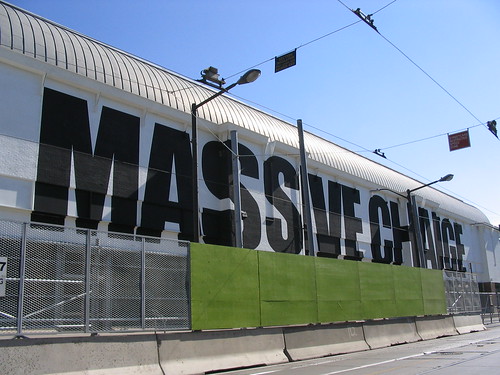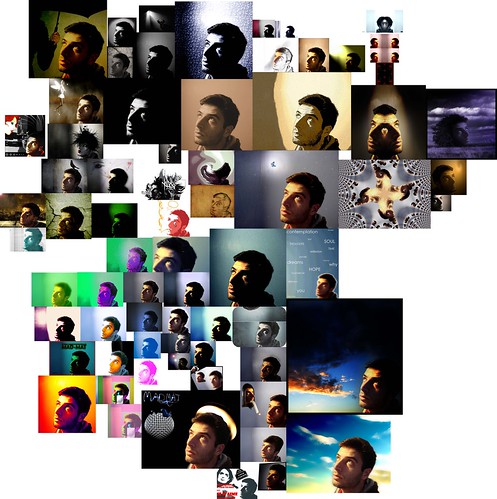 I've honestly been trying to go to sleep for the past 45 minutes, but I can't. No good reason, just restlessness.
I've honestly been trying to go to sleep for the past 45 minutes, but I can't. No good reason, just restlessness.I got much done today.
The book I've been waiting to teach, Dave Eggers' What is the What, lingers in back order purgatory, so I've decided to move on. Not only have I mapped out the remainder of this quarter, I've a plan of attack for the third and fourth quarters as well. I'd been letting things live in my head for a few months now because the final three quarters of my year will be linked. Tomorrow, I unveil this triptic project to one class of 11th grade students. I'm expecting it to be a bit intense.
The outline is available here, but I'll give you the skinny on Q3.
The essential question they'll be investigating this quarter is "What causes systemic and individual change?"
Reading: The students will be operating in Lit. Circles, reading and analyzing texts related to the question. They'll be organizing a timeline to complete the reading on schedule, having online conversations using moodle's forum feature and having three f2f group talks about the book. Even better, I'm working to get at least one teacher SLA or not working with each book (spaces still available) to put more of a focus on the exploration of texts.
| Book | Author |
| Long Way Gone | Ishmael Beah |
| One Flew Over the Cuckoo's Nest | Ken Kesey |
| It's Not About the Bike | Lance Armstrong |
| What is the What | Dave Eggers |
| I Know Why the Caged Bird Sings | Maya Angelou |
| When I was Puerto Rican | Esmeralda Santiago |
| The Soloist | Steve Lopez |
| A Room of One's Own | Virginia Woolf |
Writing: The 2fers continue this quarter. This may be my all-time favorite assignment. A bi-weekly 2-page analytical paper built around an original thesis from each student with MLA citation. The frequency gives me time to provide each student individual feedback for the next paper and shapes my remediation or decision on which skills they're ready for next.
Thinking: This is the long one. The students will be working with partners to identify a problem facing Philadelphia. From there, they'll be responsible for researching the problem's history, causes, impact and cost. They'll be drafting annotated bibliographies on all of the above and then creating presentations in the vein of ignitephilly.org. The presentations will go up online where the world will vote for the problem and presentation that shows the most promise to be relieved. The top presentations from each class will create action plans in the third quarter and the fourth quarter will be all about putting those plans into action.
It's not how I was taught English. While Mrs. Henning-Buhr and Mrs. Miller were lovely women, I don't remember ever completing an assignment in their classes and feeling connected to the outside world. The goals across the three are simple: 1. Examine various texts for insight as to how their characters help shape a possible answer to the quarter's essential question. 2. Incorporate that insight into frequent analytical writing to deepen their thinking on the topic. 3. Carry that enduring understanding to application using literary ideas to inform real world problem solving. All right, maybe not so simple.
More later.
 Never one for the "What are you thankful for?" essay, my students watched the
Never one for the "What are you thankful for?" essay, my students watched the  A Canadian teacher friend of mine made an impassioned plea to a group of assembled teachers the other day to get them to stop buying bottled water. "It is wrong to charge people for something necessary to their survival," he reasoned.
A Canadian teacher friend of mine made an impassioned plea to a group of assembled teachers the other day to get them to stop buying bottled water. "It is wrong to charge people for something necessary to their survival," he reasoned.







 in and comment on
in and comment on 
 My tenth graders created podcasts in the vein of
My tenth graders created podcasts in the vein of  It's Monday night. Here I sit in my PJs with my gradebook up-to-date. I decide to reward myself.
It's Monday night. Here I sit in my PJs with my gradebook up-to-date. I decide to reward myself.
 Our 9th Graders are working on fractured fairy tales for their benchmark. Last night's homework was to complete their rough drafts. Because these will be incorporated into children's picture books, there's a word limit of 500. It does an English teacher's heart good to have students complaining they absolutely
Our 9th Graders are working on fractured fairy tales for their benchmark. Last night's homework was to complete their rough drafts. Because these will be incorporated into children's picture books, there's a word limit of 500. It does an English teacher's heart good to have students complaining they absolutely  My 2.0 tools are running into Beta problems.
My 2.0 tools are running into Beta problems. My inbox held this message last night:
My inbox held this message last night: